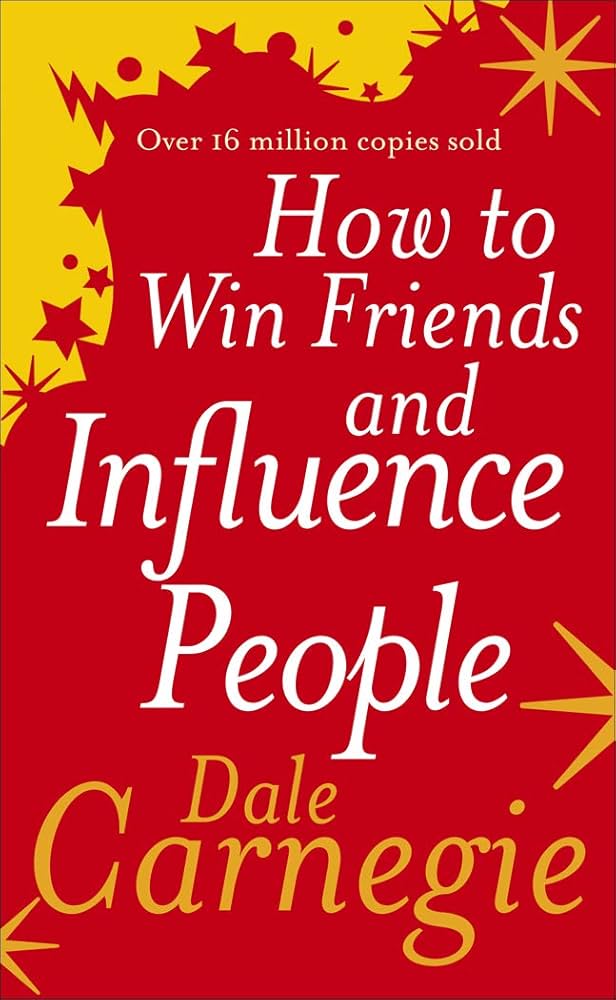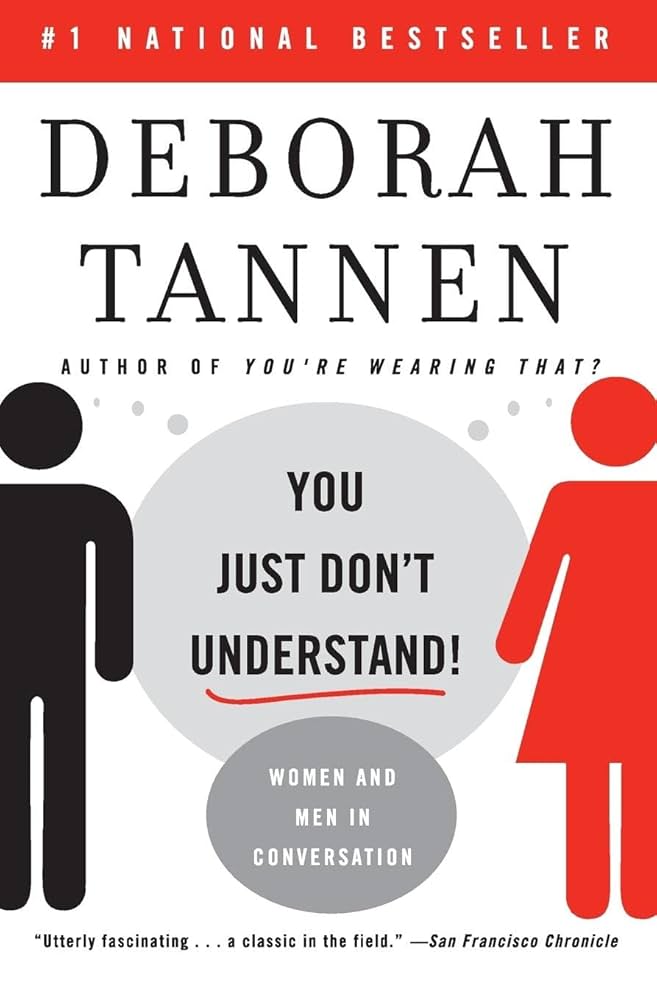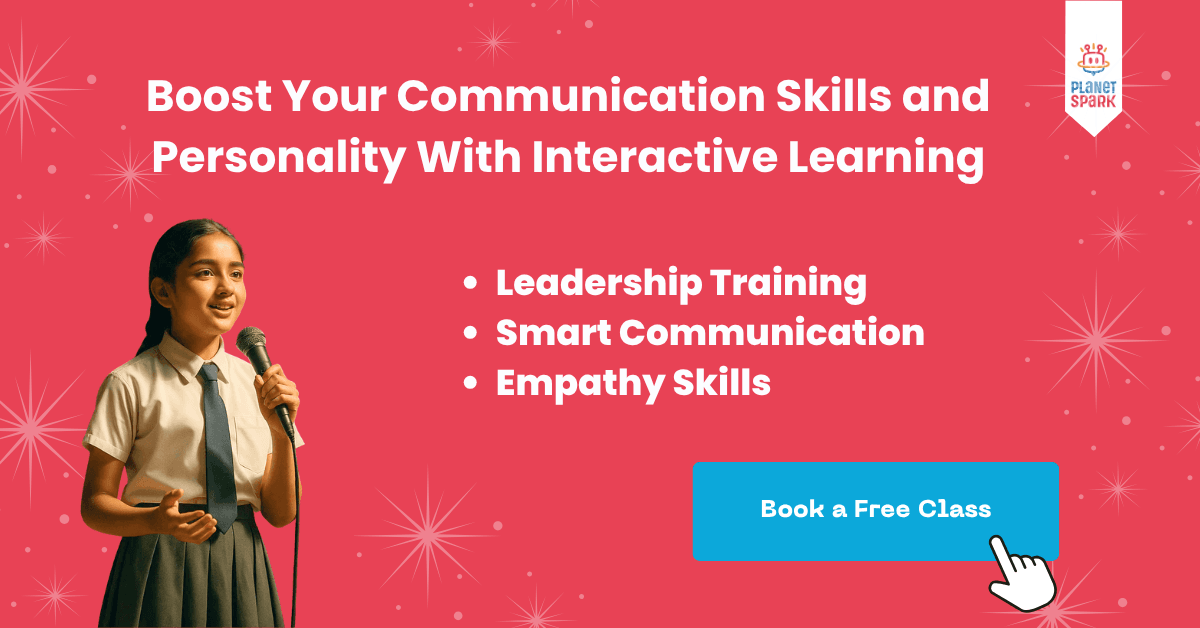10 Best Books on Communication Skills for Kids and Adults
Last Updated At: 8 Oct 2025
11 min read

Table of Contents
Being able to express yourself clearly is one of the most valuable skills today. Whether it’s a student speaking in class or a professional at work, confident communication makes a big difference. One of the easiest ways to improve this skill is by reading the right books on communication skills.
These books teach how to listen better, speak confidently, and connect with people easily. For Indian kids and adults, they offer practical lessons that can be used in school, at home, or in the workplace. If you’re looking for the best book for communication skills, this guide will help you find the right one to start your journey toward confident speaking and effective communication.
Best Books on Communication Skills
Improving communication is not just about speaking well. It is about listening, understanding, and expressing yourself clearly in every situation. These books on communication skills provide practical lessons, real-life examples, and exercises that help anyone become a confident and effective communicator.
1. How to Win Friends and Influence People by Dale Carnegie

A timeless classic, this book provides practical advice on building relationships, influencing others positively, and enhancing personal and professional communication. Carnegie emphasizes the importance of genuine interest in others, active listening, and sincere appreciation. With over 30 million copies sold worldwide, it remains one of the best-selling books of all time.
Take the First Step Towards Confident Speaking
Book a demo today and start applying what you learn from books and lessons.
2. Crucial Conversations: Tools for Talking When Stakes Are High by Kerry Patterson, Joseph Grenny, Ron McMillan, and Al Switzler

This book addresses how to handle conversations where stakes are high, emotions run strong, and opinions differ. The authors introduce techniques for creating a safe environment for dialogue, encouraging open communication, and resolving conflicts constructively. It's particularly useful for navigating challenging discussions in both personal and professional settings.
3. Never Split the Difference: Negotiating As If Your Life Depended On It by Chris Voss

Written by a former FBI hostage negotiator, this book offers negotiation techniques that can be applied in everyday situations. Voss emphasizes the importance of emotional intelligence, active listening, and tactical empathy in achieving successful outcomes. His strategies are grounded in real-world experiences and are designed to be practical and effective.
4. Nonviolent Communication: A Language of Life by Marshall B. Rosenberg

Rosenberg introduces a communication model that encourages clear, compassionate exchanges rather than conflict-driven reactions. The book focuses on empathy, expressing needs openly, and fostering cooperation. Through practical exercises and relatable stories, it guides readers in reshaping their interactions to build trust and reduce misunderstandings.
5. How to Talk to Anyone: 92 Little Tricks for Big Success in Relationships by Leil Lowndes

Lowndes offers practical tips for improving social interactions, from making a great first impression to mastering small talk. The book provides strategies for reading body language, understanding social cues, and engaging in meaningful conversations. It's particularly useful for those looking to enhance their interpersonal skills in various social settings.
6. Emotional Intelligence: Why It Can Matter More Than IQ by Daniel Goleman

Goleman's groundbreaking book explores the concept of emotional intelligence (EQ) and its impact on personal and professional success. He argues that EQ is a crucial factor in effective communication, leadership, and relationship-building. The book delves into the five components of EQ: self-awareness, self-regulation, motivation, empathy, and social skills.
7. You're Not Listening: What You're Missing and Why It Matters by Kate Murphy

Murphy examines the art of listening and its importance in effective communication. She discusses the barriers to active listening, such as distractions and biases, and offers strategies to improve listening skills. The book emphasizes that truly understanding others requires focused attention and empathy.
8. The One Minute Manager by Ken Blanchard and Spencer Johnson

This concise book presents three simple techniques for effective management and communication: one-minute goals, one-minute praisings, and one-minute reprimands. The authors argue that these brief interactions can lead to improved performance and stronger relationships in the workplace. The book has sold over 15 million copies worldwide and has been translated into 47 languages.
9. The Business Style Handbook: An A-to-Z Guide for Effective Writing on the Job by Helen Cunningham and Brenda Greene

This comprehensive guide offers practical advice on writing effectively in a business context. It covers topics such as tone, clarity, and structure, providing readers with tools to communicate professionally through written correspondence. The book is particularly useful for individuals looking to improve their business writing skills.
10. You Just Don't Understand: Women and Men in Conversation by Deborah Tannen

Tannen explores the differences in communication styles between men and women, examining how these differences can lead to misunderstandings. She introduces the concept of "genderlects," distinct communication styles shaped by gender, and discusses how recognizing these differences can improve communication and relationships.
Boost Your Communication Skills Now!
Book a demo to experience personalized guidance from expert educators.
Why You Should Read Books on Communication Skills
Communication is more than just talking. It is about expressing your ideas clearly, listening actively, and connecting with others in a meaningful way. Reading the right books on communication skills can help you develop these abilities step by step. Here’s why investing time in these books is so valuable:
1. Improve Confidence
Books teach techniques for speaking clearly, managing nervousness, and handling conversations. By learning strategies and practicing them, readers feel more confident expressing themselves in school, at work, or in social situations.
2. Enhance Vocabulary and Expression
Reading exposes you to new words, phrases, and ways of framing ideas. This not only improves your vocabulary but also helps you explain thoughts more precisely and effectively.
3. Learn Effective Listening
Good communication is a two-way process. Many books on communication skills teach active listening, understanding body language, and responding thoughtfully. These lessons improve relationships with friends, family, teachers, and colleagues.
4. Gain Practical Life Skills
From classroom presentations to workplace meetings, communication is essential everywhere. Books provide real-life examples, exercises, and tips that readers can immediately apply, making learning practical and useful.
5. Build Empathy and Emotional Intelligence
Understanding how others think and feel is a key part of communication. Many books guide readers to develop empathy, emotional awareness, and respect for different perspectives, which strengthens personal and professional connections.
6. Develop Leadership and Influence
Strong communicators can motivate, persuade, and inspire others. By reading about strategies, success stories, and techniques, readers learn how to become more influential and take initiative in various situations.
Reading books on communication skills is not just about learning how to speak better. It helps you grow as a person, connect with people effectively, and navigate challenges in school, work, and life with confidence.
What Makes the Best Book for Communication Skills
Not all books on communication skills are equally effective. Choosing the best book for communication skills depends on how well it teaches practical techniques, builds confidence, and keeps readers engaged. Here are the key qualities to look for:
1. Practical and Actionable Tips: The best books provide strategies you can use in real life, not just theory. They include exercises, examples, and step-by-step guidance to help you practice speaking, listening, and connecting with others effectively.
2. Easy to Understand: A great communication book explains concepts clearly. It uses simple language, relatable examples, and engaging stories so that readers of any age can grasp and apply the lessons.
3. Covers All Aspects of Communication: Effective communication involves more than just talking. Look for books that teach listening skills, empathy, body language, tone, and clarity of thought, so you can become a well-rounded communicator.
4. Builds Confidence: The best books encourage readers to step out of their comfort zone. They include tips for public speaking, handling difficult conversations, and expressing ideas confidently in various situations.
5. Encourages Consistent Practice: Learning communication is a skill that improves with practice. Books that include exercises, reflection prompts, and practical scenarios make it easier for readers to apply what they learn daily.
6. Inspirational and Motivating: A good book not only teaches skills but also inspires readers to communicate better. Stories of successful communicators, motivational examples, and positive reinforcement help readers stay engaged and committed to improving.
Choosing the right book can make a significant difference in how quickly and effectively you improve your communication skills. The best book for communication skills will teach techniques, boost confidence, and provide practical lessons that you can apply immediately.
Tips to Get the Most from Books on Communication Skills
Reading a book is just the first step. To truly improve your communication, you need to practice and apply what you learn. Here are some tips to help you get the most out of any book on communication skills:
- Take Notes While Reading: Write down key points, phrases, and techniques that stand out. Highlight examples that you can try in real-life conversations. This makes it easier to revisit important lessons later.
- Practice Daily: Communication is a skill that improves with practice. Try out exercises from the book every day, such as speaking clearly, using new vocabulary, or listening actively in conversations.
- Reflect on Your Progress: After practicing, reflect on what worked well and what you can improve. Keeping a journal helps track your growth and reinforces learning.
- Apply Lessons in Real-Life Situations: Whether it is a classroom discussion, a meeting, or talking with friends and family, apply the techniques you learn. Real-life practice strengthens your confidence and makes the skills stick.
- Learn from Examples: Many communication books include stories or scenarios. Study these examples carefully to understand how successful communicators handle situations and adapt the lessons to your own life.
- Focus on Listening and Empathy: Good communication is not only about speaking well. Practice listening carefully and understanding the perspective of others. This builds stronger relationships and makes your communication more effective.
- Revisit and Review: Some lessons may take time to fully grasp. Re-reading chapters and reviewing notes ensures that you retain the skills and continue to improve over time.
Applying these strategies will help you get the maximum benefit from any book on communication skills and gradually transform the way you speak, listen, and connect with others.

How PlanetSpark Helps You Improve Communication Skills
Reading books is a great way to learn communication techniques, but practicing them in real life is equally important. PlanetSpark offers interactive online classes that help kids and adults turn what they read into action.
Through storytelling, public speaking exercises, and guided conversations, learners develop confidence, clarity, and effective listening skills. PlanetSpark’s approach focuses on:
Practical Application: Learners practice speaking, listening, and presenting in real scenarios.
Personalized Guidance: Experienced educators provide feedback to help learners improve steadily.
Engaging Lessons: Interactive sessions make learning fun and motivate learners to communicate better.
Whether you want to excel in school, work, or daily conversations, PlanetSpark ensures that learners apply the lessons from books effectively and confidently.
Conclusion
Improving communication is a lifelong journey, and reading the right books on communication skills is a powerful way to start. These books teach practical strategies, boost confidence, and help you connect better with others.
Remember, reading alone is not enough. Practicing what you learn, reflecting on your progress, and applying lessons in real-life situations is what makes the difference. By combining learning from books with consistent practice, you can become a confident and effective communicator in school, at work, and in daily life.
Start with one book today and gradually explore more. Each step will bring you closer to mastering the art of communication.
Frequently Asked Questions (FAQs)
1. What is the best book for communication skills for beginners?
A great starting point is How to Win Friends and Influence People by Dale Carnegie. It offers simple, practical tips for improving relationships and speaking confidently.
2. Can kids really benefit from communication skills books?
Yes. Books tailored for younger readers help them express ideas clearly, listen actively, and gain confidence in class discussions and presentations.
3. Are books enough to improve communication skills?
Books provide knowledge and strategies, but practicing in real-life situations is essential. Combining reading with exercises, conversations, and public speaking helps reinforce learning.
4. Which book is easiest to understand for beginners?
You Are a Great Communicator by Jennifer Moore-Mallinos and What Do You Say? by Catherine Blyth are simple, engaging, and suitable for readers new to communication skills.
5. How can I practice communication skills daily?
You can practice by speaking with family and friends, joining discussions, presenting ideas in class or work, and applying exercises from communication books consistently.
Download Free Worksheets
Personalized Communication Report
Record a video to get a AI generated personalized communication report for your child
Select Learner's Class

Hi There, want to try these
tips for your child with
LIVE with our expert coach?
Let's check your child's
English fluency




